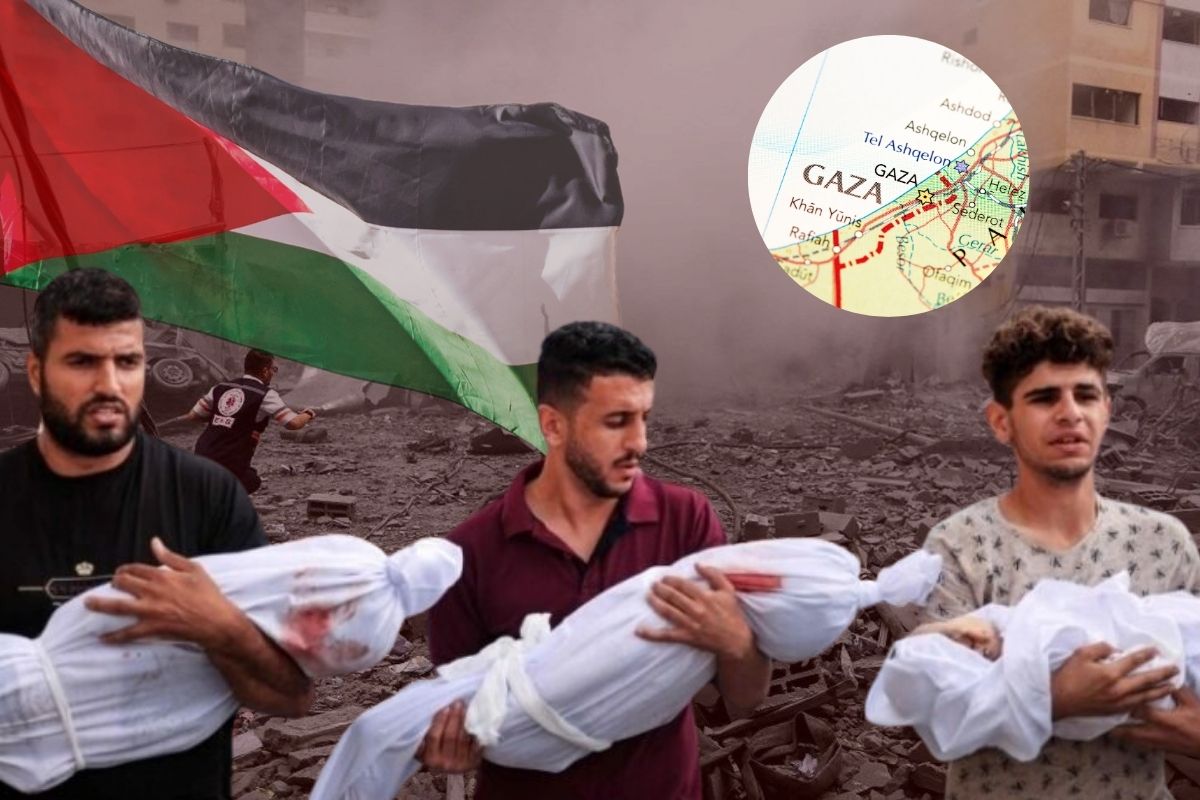The Gaza Strip has an ongoing conflict. It has been a subject of intense scrutiny and debate internationally. People have accused Israel of genocide. Legal proceedings are happening at the International Court of Justice (ICJ). They aim to address the allegations. In this article, we cover the key parts of the Gaza genocide case. We explain the charges against Israel and the impact of this historic legal battle.
The Legal Battle at The Hague
South Africa’s Petition
South Africa asked the ICJ to investigate Israel. The investigation is for war crimes in the Gaza Strip. The heart of the matter lies in the claim that Israel is perpetrating genocide in the region. The petition alleges that Israel is not doing enough to punish those inciting genocide. It also says Israel is using force against civilians without care. It also accuses Israel of crimes against humanity and war crimes. It says Israel’s acts meet the criteria for genocide.
Charges Against Israel
- Genocide Allegations: The central accusation is that Israel’s actions in Gaza fulfill the criteria for genocide. The term “genocide” refers to the planned and orderly destruction of a racial, ethnic, religious, or national group. The petition says that Israel’s actions caused the destruction of lives, homes, and communities in Gaza.
- Indiscriminate Use of Force: The petition highlights Israel’s alleged indiscriminate use of force, resulting in civilian casualties. The high death toll, including women and children, is cited as evidence of Israel’s actions.
- Forcible Removal of Inhabitants: The petition also accuses Israel of forcibly removing inhabitants from their homes, contributing to the displacement crisis in Gaza.
Israel’s Defense
Israel vehemently denies the genocide allegations. Prime Minister Benjamin Netanyahu has appointed former Chief Justice Aharon Barak. Barak will represent Israel in the ICJ hearings. Israel seeks to block any court order for an immediate cease-fire. It aims to convince the court that it is not committing genocide. The result of this legal battle could have big effects. They could affect morality, diplomacy, and the economy.
Key Legal Questions
Several legal questions surround the Gaza genocide case:
- Is It Genocide?: The ICJ must determine whether Israel’s actions meet the legal definition of genocide. This involves assessing intent, systematic destruction, and the targeted group.
- War Crimes and Crimes Against Humanity: Beyond genocide, the court will examine other alleged crimes, including war crimes and crimes against humanity.
- Cease-Fire Order: South Africa seeks a court order for an immediate cease-fire in Gaza. Israel opposes this, arguing that it would compromise its security.
World Response to the Gaza Genocide Issue
The International Court of Justice (ICJ) recently delivered a significant ruling in the case of South Africa v. Israel, addressing allegations of genocide in the Gaza Strip. Here’s how the world has responded:
ICJ’s Ruling
- The ICJ declared that Palestinians have a right to be protected from acts of genocide.
- It called on Israel to “do all it can” to prevent such actions. It should also allow aid into Gaza, where it is badly needed.
- The court did not explicitly order an immediate cease-fire. But, it stressed the need for protection and accountability.
UN Secretary-General’s Statement
- UN Secretary-General António Guterres stressed that decisions of the court are binding.
- He expects all parties to follow the court’s order. This order includes measures about the Israeli military.
- The notice of the interim measures will be sent to the UN Security Council.
Global Reactions
- Palestine: The Ministry of Foreign Affairs and Expatriates welcomed the ruling, emphasizing that no state is above the law.
- International Community: The case has drawn attention globally, with many closely monitoring the proceedings.
- Human Rights Advocates: Organizations and individuals advocating for justice and accountability have expressed their views.
- Media and Public Opinion: News outlets and public discussions have highlighted the significance of the ICJ’s interim ruling2.
Growing Rift Between West and Global South
- Countries like Indonesia, Turkey, Brazil, and South Africa have taken a firm stand critical of Israel’s actions in Gaza.
- These nations, especially those in the Global South, have expressed concern about the humanitarian crisis. They also stress the need for accountability.
Conclusion
The Gaza conflict is deeply entrenched in historical, political, and humanitarian complexities. The suffering of civilians on both sides cannot be overlooked. While legal proceedings continue, the world watches closely, hoping for justice and a path toward peace.
The Gaza genocide case is a critical moment in the ongoing conflict. The ICJ’s decision will shape the story. It will impact diplomacy. And, it might hold accountable those who caused suffering in Gaza.











